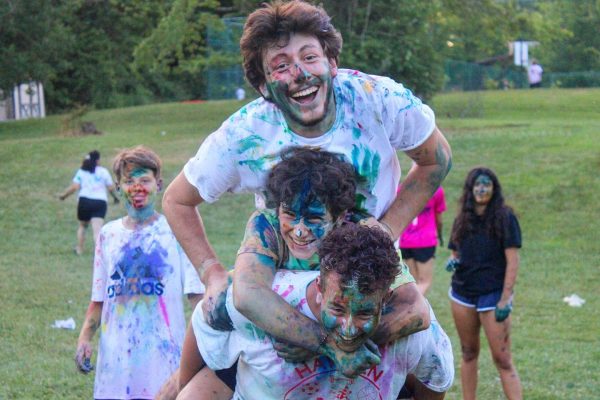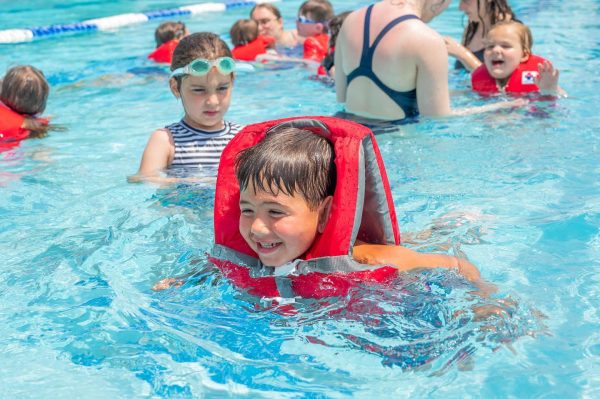Those Who Lead
A big part of the formative years of my career was spent at camp. Right out of college I joined the staff at Young Judaea, the Zionist youth movement, and off I went. During the next several years, I was privileged to serve as merakez (unit head), rosh machaneh (head counselor) and finally as director—one of the remarkable experiences of my life.
The camp, Young Judaea-Sprout Lake, is located in Dutchess County, New York, on 80 rural acres not far from the city of Poughkeepsie. Home to some 200 or so campers and perhaps 75 staff each session, camp was an island. Not entirely cut off from the outside world, it was separate and apart—a small community with its own rhythms, pace, traditions, personalities, and style. Campers were as young as 7 and as old as 14—with the majority of staff not much older. Seventeen to 20-year-olds—under the watchful eye of senior staff members, themselves former counselors from a season or two prior—saw to the health and welfare of the kids in their units, shepherding them through days of fun in the sun, at the pool, in arts and crafts, and on hikes, all the while songs and cheers filled the air. Each session dotted with special days: Trip day. Israel Day. Maccabiah (color wars). And so much more.
I became camp director at the ripe old age of 26. From the vantage point of prior roles I’d had at camp, the job looked amazing. The mayor of Munchkin City. All that authority—and the ability to make things happen with the snap of my fingers.
And yet, that isn’t quite what the experience turned out to be.
Sure, there was plenty of authority, but the brochure hadn’t been nearly so clear about what the day-to-day experiences would be like. No mention of the daily problems: Septic system back-ups. Homesick campers. Behavioral issues. It didn’t adequately describe the calls from difficult parents. Unannounced health department inspections. Or the occasional issues arising between consenting members of the staff.
Don’t get me wrong.
It was an amazing experience and there were countless special moments. And taking the longer view, it remains among the most important jobs in the Jewish community—a position from which one can guide the development of countless young lives—both campers and staff—as we strive to build a stronger, more passionate Jewish community.
So why this trip down memory lane?
I had the good fortune to spend time this past week speaking with a number of our current overnight camp directors. There were both individual calls and a group Zoom call that focused specifically on the most challenging matters of the season thus far—issues arising from COVID-19. The virus, it seems, is still very much with us. No longer to be feared, as it was early on, but a host of issues remain.
Minor outbreaks continue, obliging each camp to maintain contingency plans for housing, transportation, and supervision. Ongoing communication with concerned parents and families, board members, and public health officials add another layer of responsibility to which leaders must attend. Over the course of two-and-a-half years, we’ve come to understand that the virus itself has been the pebble in the pond. Additional challenges are found in the ever-expanding ripples, including greater fragility in mental and emotional health. There’s also a major labor shortage; many camps are operating with leaner staffing than they might like, and most directors would prefer even more hands than in a typical year.
It isn’t easy. And that’s what much of the conversation was about. Another flashback for me to my time as a camp director. It wasn’t easy—and I spent a lot of my time attending to the problems. That’s what directors often have to do.
Michael Schlank is CEO of NJY Camps, the largest Jewish overnight camp on the continent and a backbone of our movement. Many of us are familiar with the refrain among parents: Little kids, little problems; big kids, big problems. Though not always accurate, there is a measure of truth to it, and I believe there is a corollary among camps. With thousands of campers and staff, NJY is contending with these challenges in spades—and I could feel the strain and fatigue, the concern for those around him, and the burden of responsibility that rests on his shoulders.
And then we talked about the bigger picture. The overwhelming majority of campers at NJY are having the time of their lives. Through his window or from the front porch of his house, he can hear the sounds of unmitigated joy: Campers at play. Campers in song. The beauty of Jewish summer camp in all its glory. As our conversation ended, I found myself reflecting with enormous pride on the significance of the work he’s doing—and on the work camp directors are doing across our movement.

Jewish overnight camp is perhaps the most powerful vehicle we have for instilling a sense of self, of community, and of peoplehood in the next generation. It’s unique on the landscape of Jewish education. Overnight camping is voluntary, repeating, intensive, immersive, and dedicated, with unbridled commitment to something greater than ourselves: joyful, even magical Jewish communities that are diverse and dynamic, inclusive and idealistic, and rooted in tradition and timelessness.

The summer of 2022 likely will not be remembered as among the easier ones, but for countless thousands of kids, it will be remembered with fondness, with pride, with broad smiles and full hearts—and with friendships that last a lifetime.
My time as a camp director ended long ago, but as I watch my colleagues manage the challenges of today with enormous grace under pressure, I feel an overwhelming sense of gratitude for each of them. So, thank you, Michael. Thank you, Toni. Thank you, Carly, Buddy, Adam, and Bill. Thank you, Havi. Thank you, Jen, Michelle, Jamie, and Max. Thank you to all our camp directors and executives, to all our senior staff, and to their colleagues at our peer Jewish camps throughout North America.
The challenges of COVID-19 seem unlikely to relinquish their hold on our lives for some time yet. This week’s Torah portion, Chukat | חֻקַּ֣ת, recounts another chapter in the story of the Exodus, a journey from slavery in Egypt to freedom and the Promised Land, a journey that lasted 40 years. Chukat, like each of the surrounding parashot, recounts moments of hardship and moments of joy, moments in which we lost hope and others in which hope was restored. Throughout our journey, we looked to Moses and to leaders around him to guide our steps, to bind us together, never losing sight of our destination. From where we are today, it seems there was never any doubt that we would get there, but that’s probably not how it looked in the moment.
Shabbat shalom.

Doron Krakow
President and CEO
JCC Association of North America
Reader Interactions